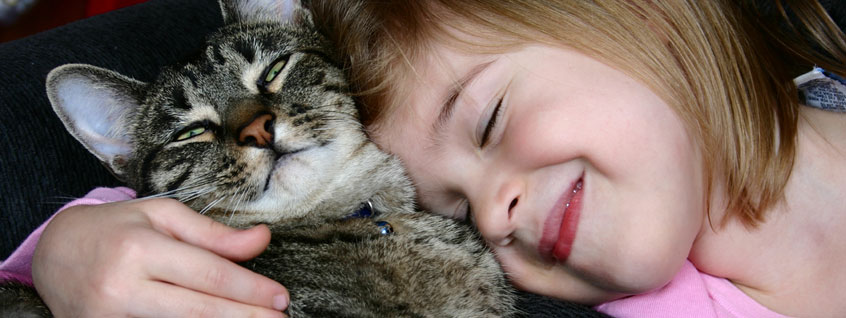"In 2001 a very special little kitten came to stay at our house named Emma. She weighed in at a whopping 2 ½ pounds. When she was about 9 months old she began vomiting and wouldn’t eat. The doctors at Piney Creek Square Veterinary Clinic took x-rays, but nothing showed up on them. She was losing weight, and she was thin by nature anyway, so everyone was worried about her. Dr. Behrns came to the rescue and performed emergency surgery on our little girl. She found an almond trying to pass into Emma’s stomach. Of course, it would not have shown up on an x-ray. Thank you, Dr. Behrns, for saving Emma’s life."
-Margo K.

It is our choice at Piney Creek Square Integrative Veterinary Medicine to Educate…..Not Amputate.
Declawing has been a commonly accepted practice in veterinary medicine for decades. However, as science has advanced so has the awareness of what is entailed in a declaw surgery. In many countries, declawing is either not done or is outright illegal out of humane concern for our feline companions. Declawing a cat is a serious surgery that is widely recognized to be a very painful procedure.
Declaw surgery has a number of potential complications. The first is persistent pain. It has been shown that some individuals will experience pain long after the post-op pain should have resolved. Occasionally, the pain will persist for life. We suspect that the cats feel phantom pain in their amputation sites, just as some human amputees feel phantom pain for years in limbs that are no longer there. The second complication is that some cats will not be able to stand normally on their paws. The tendon structure never heals normally, leading to an abnormal posture. Finally, infection is possible even though the cats walk around on the surgical sites post-op.
At Piney Creek Square Integrative Veterinary Medicine, we do not perform declawing of cats unless it is medically necessary (i.e. irreparable trauma, infection, tumors, etc.). We feel it is best to try and resolve the problems non-surgically if possible, as we know this is true of any medical condition: If a viable non-surgical alternative exists, it should be tried before surgery.
Non-Surgical Alternative Suggestions:
Additional Information on Declawing:
Seasonal Tips & More
Our Professionals
Make An Appointment
Request a Refill
PINEY CREEK SQUARE
INTEGRATIVE VETERINARY MEDICINE
15420 E Orchard Rd
Centennial, CO 80016
HOURS
Monday through Friday from 8:00 a.m. – 6:00 p.m.
Closed from Noon to 1:30 p.m. for lunch
Closed Saturday’s, Sunday’s and major holidays.
© 2022 PINEY CREEK SQUARE INTEGRATIVE VETERINARY MEDICINE
While we often refer to clients to these resources, their inclusion on Piney Creek Square Integrative Veterinary Medicine’s site does not constitute an endorsement unless otherwise stated. Piney Creek Square Integrative Veterinary Medicine is not responsible for any outdated or incorrect information or links from these sites.

Website by Mad Cow Web Design